April 7 is :
National Coffee Cake Day The first coffee cakes appeared around the 17th century in Europe, when drinking coffee beverages was introduced.
National Beer Day
No Housework Day
World Health Day, anniversary of the establishment of the World Health Organization in 1948.
Death of El Greco (Doménikos Theotokópoulos) in 1614, artist of the Spanish Renaissance. A sample of his works can be found at Wikiart.org.
Domenikos Theotokopoulos, other wise known as “El Greco” due to his Greek heritage, was a popular Greek painter, sculptor, and architect of the Spanish Renaissance. He was a master of post-Byzantine art by the age of 26, when he traveled to Venice, and later Rome, where he opened his first workshop. Unlike other artists, El Greco altered his style in order to distinguish himself from other artists of the time, inventing new and unusual interpretations of religious subject matter. He created agile, elongated figures, and included a vibrant atmospheric light. After the death of Raphael and Michelangelo, he was determined to leave his own artistic mark, and offered to paint over Michelangelo’s Last Supper to Pope Pius V.
In 1652, at the Cape of Good Hope, Dutch sailor Jan van Riebeeck established a resupply camp that eventually becomes Cape Town.
Birthday of William Wordsworth (April 7, 1770), English poet, author of “The World Is Too Much With Us”.
The world is too much with us; late and soon,
Getting and spending, we lay waste our powers;
Little we see in Nature that is ours;
We have given our hearts away, a sordid boon!
This Sea that bares her bosom to the moon,
The winds that will be howling at all hours,
And are up-gathered now like sleeping flowers,
For this, for everything, we are out of tune;
It moves us not. –Great God! I’d rather be
A Pagan suckled in a creed outworn;
So might I, standing on this pleasant lea,
Have glimpses that would make me less forlorn;
Have sight of Proteus rising from the sea;
Or hear old Triton blow his wreathèd horn.
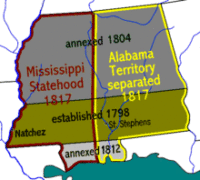 In 1798, the Mississippi Territory was created by an act of Congress, with Natchez as the capital.
In 1798, the Mississippi Territory was created by an act of Congress, with Natchez as the capital.
In 1862, Union forces led by Gen. Ulysses S. Grant defeated the Confederates at the Battle of Shiloh in Tennessee.
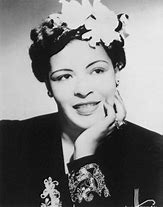 In 1915, jazz singer-songwriter Billie Holiday, also known as “Lady Day,” was born in Philadelphia.
In 1915, jazz singer-songwriter Billie Holiday, also known as “Lady Day,” was born in Philadelphia.
On April 7, 1923, the Workers Party of America (NYC) becomes official Communist Party
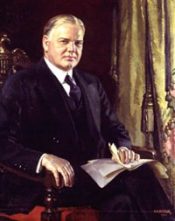 On April 7, 1927, the image and voice of Commerce Secretary, Herbert Hoover, were transmitted live from Washington to New York in the first successful long-distance demonstration of television.
On April 7, 1927, the image and voice of Commerce Secretary, Herbert Hoover, were transmitted live from Washington to New York in the first successful long-distance demonstration of television.
In 1959, a referendum in Oklahoma repealed the state’s ban on alcoholic beverages.
In 1962, nearly 1,200 Cuban exiles tried by Cuba for their roles in the failed Bay of Pigs invasion were convicted of treason. Per Wikipedia:
About 1,202 members of Brigade 2506 were captured, of whom nine died from asphyxiation during transfer to Havana in a closed truck. In May 1961, Fidel Castro proposed to exchange the surviving Brigade prisoners for 500 large farm tractors, valued at US$28,000,000. On 8 September 1961, 14 Brigade prisoners were convicted of torture, murder and other major crimes committed in Cuba before the invasion. Five were executed and nine others imprisoned for 30 years… On 29 March 1962, 1,179 men were put on trial for treason. On 7 April 1962, all were convicted and sentenced to 30 years in prison. On 14 April 1962, 60 wounded and sick prisoners were freed and transported to the US.
On 21 December 1962, Cuban Prime Minister Fidel Castro and James B. Donovan, a US lawyer aided by Milan C. Miskovsky, a CIA legal officer, signed an agreement to exchange 1,113 prisoners for US$53 million in food and medicine, sourced from private donations and from companies expecting tax concessions. On 24 December 1962, some prisoners were flown to Miami, others following on the ship African Pilot, plus about 1,000 family members also allowed to leave Cuba. On 29 December 1962, President Kennedy and his wife Jacqueline attended a “welcome back” ceremony for Brigade 2506 veterans at the Orange Bowl in Miami, Florida
The World Trade Organization ruled in favor of the United States in its long-running trade dispute with the European Union over bananas on April 7, 1999. See the guardian.com for more information.

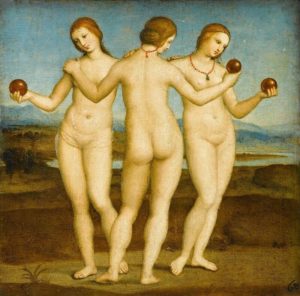 Birthday of Raphael (Raffaello Sanzio da Urbino) (April 6, 1483), Italian painter and architect of the High Renaissance. Also anniversary of his death in 1520, on his 37th birthday. A sample of his work can be seen at
Birthday of Raphael (Raffaello Sanzio da Urbino) (April 6, 1483), Italian painter and architect of the High Renaissance. Also anniversary of his death in 1520, on his 37th birthday. A sample of his work can be seen at 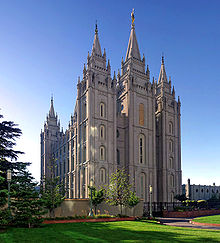 On this date in 1893, cornerstone of the Mormon Temple in Salt Lake City,
On this date in 1893, cornerstone of the Mormon Temple in Salt Lake City,  April 5, 1722 – Jacob Roggeveen became the first European to land on Easter Island, landing there on Easter Sunday.
April 5, 1722 – Jacob Roggeveen became the first European to land on Easter Island, landing there on Easter Sunday.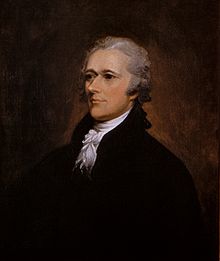 Publication of
Publication of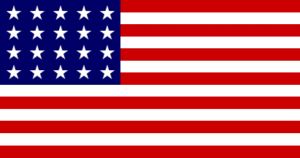 April 4, 1818 – The United States Congress adopted the Flag of the United States with 13 red and white stripes and one star for each state (then 20).
April 4, 1818 – The United States Congress adopted the Flag of the United States with 13 red and white stripes and one star for each state (then 20).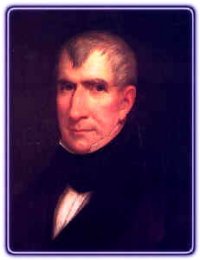 April 4, 1841 –
April 4, 1841 –  1973 – The World Trade Center in New York was officially dedicated. Stood for 28 years.
1973 – The World Trade Center in New York was officially dedicated. Stood for 28 years. April 2 Flower of the Day: Daffodil
April 2 Flower of the Day: Daffodil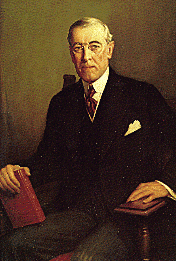 1917 – World War I: United States
1917 – World War I: United States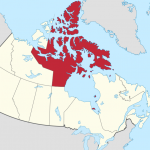 1999 – Nunavut is established as a Canadian territory carved out of the eastern part of the Northwest Territories.
1999 – Nunavut is established as a Canadian territory carved out of the eastern part of the Northwest Territories. 1889 – The Eiffel Tower was opened to the public. It commemorates the French Revolution.
1889 – The Eiffel Tower was opened to the public. It commemorates the French Revolution.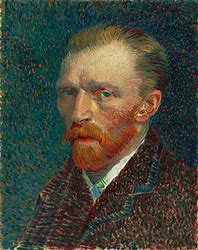 Birthday of Vincent Willem van Gogh (March 30, 1853), Dutch post- impressionist painter. See
Birthday of Vincent Willem van Gogh (March 30, 1853), Dutch post- impressionist painter. See 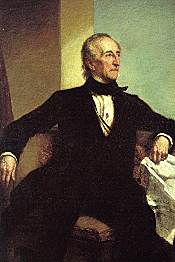 Birthday of
Birthday of